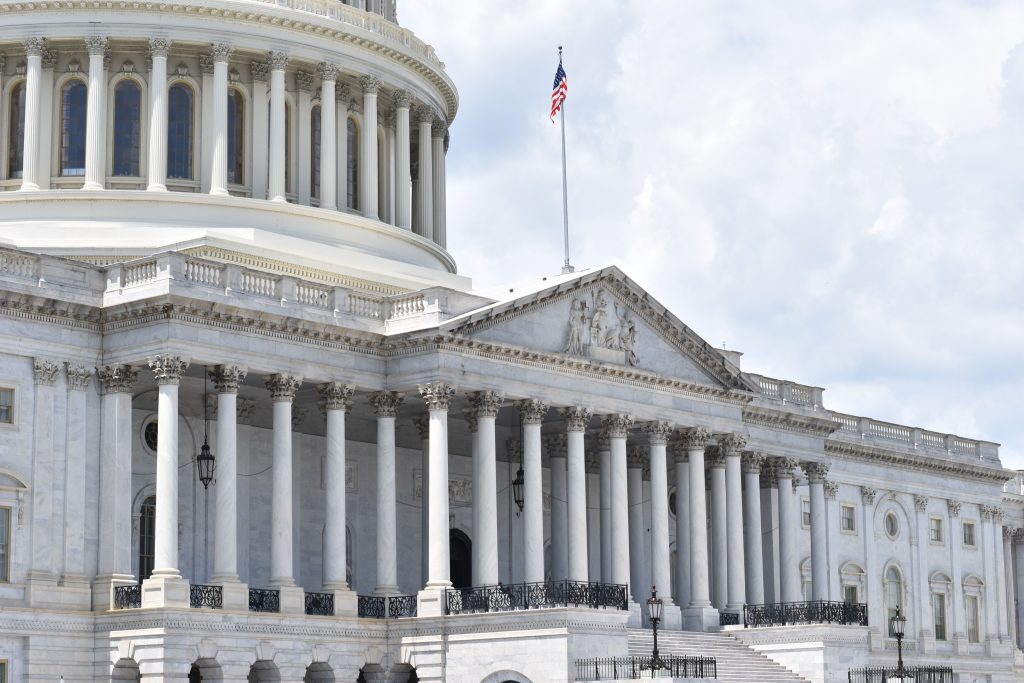
A House Bill Proposes a White House Office to Promote Government Partnerships with Nonprofits—As if the Faith-Based Initiative Did Not Exist!
Representatives Betty McCollum (D-Minnesota) and Fred Upton (R-Michigan) have introduced H.R. 7587, the Nonprofit Sector Strength and Partnership Act. Among the bill’s positive features are the proposed creation of an online portal to make it easier for charities to apply for and renew their registrations with multiple states to solicit charitable contributions; directing the federal government to simplify the processes by which private organizations apply for funding to provide services; and a requirement that various federal agencies improve their collection and publication of data about nonprofit organizations. Especially notable in our era of calls for expanded government action are the bill’s promotion of volunteering and charitable giving. However, oddly and worrisomely, the bill totally ignores the existing, two-decade old, federal initiative to promote the nonprofit sector and expanded partnerships between nonprofits and government: the faith-based initiative with its White House Office of Faith-Based and Neighborhood Partnerships and its counterpart Centers in major federal agencies. The bill also overlooks religion when identifying the key dimensions of diversity relevant to the nonprofit sector.
Rep. McCollum proposed a similar bill a dozen years ago, which prompted some positive commentary about the value of a “Small Business Administration for Nonprofits” to parallel the current SBA with its focus on companies. That bill, too, was nearly silent on the importance of religion in civil society. It did not get significant congressional support. The current bill has the strong backing of Independent Sector, the sophisticated advocacy group that represents primarily large and less-religious nonprofits. A significant number of nonprofit organizations and associations have signed onto a letter recommending the bill. The principal co-sponsors, Reps. McCollum and Upton, in May co-authored an op-ed arguing the need for the bill by recalling that the nonprofit sector had needed to work with Congress to ensure that the new Paycheck Protection Program (PPP) that was being designed to help economic entities remain viable during the pandemic would support nonprofits and not just businesses. And the sector had to step in when the initial PPP application form designed by the SBA asked every applicant organization to name its owners—even though nonprofits do not have owners.
However, although the op-ed is silent about this, the PPP experience also revealed another important reality: the SBA not only barely understood nonprofits; its regulations and officials, left to themselves, were not very hospitable to faith-based nonprofits that needed assistance. Much advocacy by religious freedom advocates was required to change rules and practices. Moreover, while the federal government, as the bill proposes, ought to collect and disseminate more comprehensive data on the nonprofit sector, it first needs to better understand the role of faith-based organizations within the sector. Currently, the many faith-based organizations that provide services to society are categorized either as religious, as are churches and seminaries, or simply as providers of some particular service, such as day care or low-income housing—even though they provide these services specifically as faith-based organizations. The result is that surveying nonprofits using the current classification systems can never reveal the vital role played by faith-based organizations.
In short: the bill proposed by Reps. McCollum and Upton with its implicit view of society and religion misses absolutely critical dimensions and constituent elements of our actual civil society. The faith-based initiative, in sharp contrast, has always understood that both religious and secular organizations play vital roles, but that faith-based organizations have distinctive qualities and needs that must be specifically addressed. The faith-based initiative, with its minimally staffed White House Office and Centers, would be significantly enhanced if Congress authorized it to take on the responsibilities enumerated in this bill and also authorized its institutions in statute, replacing their current authorization by presidential action. But faith-based organizations, and government partnerships with civil society for the sake of the greater good of marginalized people and communities, would be greatly harmed if, instead, the McCollum and Upton bill was enacted as is, with its blinders concerning religion and faith-based services.
Howard Husock, an insightful commentator on the interaction of government and civil society, has warned against the bill. The danger, he writes, “lies in its core idea: ‘to strengthen the nonprofit sector and its partnership with government.’” Such partnerships, where the government provides funding to private organizations to provide government-specified services, “fundamentally compromise[] the independence of the nonprofit sector,” turning what should be organizations with their own means of support and their own convictions of what needs to be done, into mere “nonprofits for hire,” doing the bidding of government much like janitorial services contracted to clean government buildings.
That is, indeed, a deadly danger for private organizations that ought to be inspired and directed, most fundamentally, by their own missions, their own vision of need and flourishing. As the late Stephen Monsma, premier analyst of government partnerships with nonprofits, and particularly of partnerships with faith-based nonprofits, always stressed, at the heart of thriving nonprofits, there must be substantial autonomy—self-direction and inspiration by their own unique missions, religious or secular. That’s the core inspiration and work of the faith-based initiative itself: to cause changes in government practices, programs, regulations, and laws so that the interaction between government and civil society organizations will be characterized by practical respect by government for the distinctive characteristics, identities, and missions of both faith-based and secular organizations.

Stanley:
Commentary like this, built on sharp attention to the legislative gristmill, is why IFRA is so needed. I admit that while I am not at all surprised that my House Representative, Betty McCollum, is completely unaware of faith-based initiatives, it surprises me that Fred Upton, who represents adsitict adjacent to Grand Rapids, should be so unaware as well.
In any case, I will write to Rep. McCollum and link her to this article.
Bob Osburn